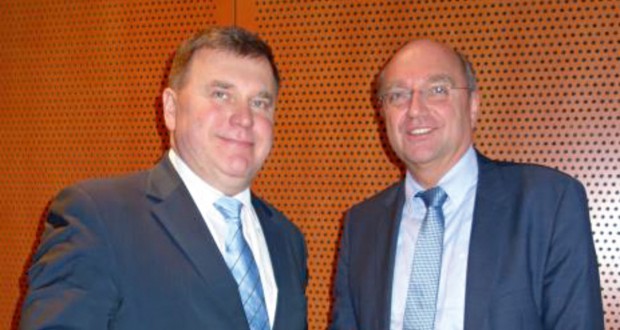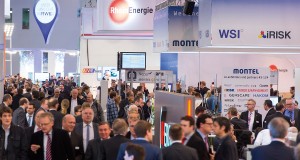In January Dr. Christian Ehler MEP and Prof. Jerzy Buzek MEP hosted the first European Round Table on Coal of the new EU-Parliament. MEPs from across the Union came along to better understand coal and the contribution it makes to a secure and reliable energy supply: 28 % of the EU’s electricity is produced from coal.
Prof. Buzek expressed his pleasure to be once again working with the coal industry. He reflected that when he entered the European Parliament in 2004, his first assignment in Brussels outside of the Parliament was a European Commission meeting with EURACOAL. He saw indigenous coal production as important, but only with technological change to improve efficiency. Here, he was proud of his record on ensuring that clean coal technologies remained in the RTD Framework Programmes. Today, he called for a shift in the language used by policy makers: a low-emission future is possible, a low-carbon future is not because the world will continue to depend heavily on fossil fuels, including coal and lignite. In the lead up to COP-21 in Paris, Prof. Buzek warned that the EU could not be a “lonely front runner”. In this respect, changes to the ETS must not be allowed to damage the economy, so allowances must be allowed back into the system and carbon-leakage protection must continue, he said. On the latter point, he turned again to language. For the public, “carbon leakage” seems innocuous, but it is really a discussion about “job leakage” which is a much clearer term and concerns everyone.
Prof. Klaus-Dieter Borchardt gave the keynote address, touching on many of the major issues facing the energy sector, as viewed from his position in the European Commission where he is Director – Internal Energy Market. The idiom that “coal is a fuel of the past” is false, he said, “coal is back” with a leading share in power generation, a share that is growing. In Europe, coal offered flexibility and security – Prof. Borchardt had witnessed this during visits to modern coal plants. He noted that renewables were growing, but were not economic. Therefore, the Commission wanted to see renewable producers integrated into a market where they have balancing responsibility, pay correct grid fees and no longer benefit from priority feed-in tariffs. He challenged the coal industry to be more proactive; to achieve the now agreed targets for 2030 and beyond, there was no question in his mind that CCS would be needed, yet Europe now lagged behind other regions with no large-scale demonstration. He wanted a framework that would allow coal to be part of a balance energy mix, so that Europe could benefit from a secure and competitive energy supply as the share of intermittent renewables grows.
Recently elected EURACOAL President, Dr. Zygmunt Łukaszczyk, who is also President of Katowicki Holding Węglowy S.A. – one of Poland’s largest coal mining companies, warned that, like Brussels, the coal industry in Europe was on “Yellow Alert”. Low oil prices meant that coal prices had fallen to impossible levels for many coal producers; geopolitics were damaging the prospects for indigenous coal production, not any lack of demand. It was therefore important for the industry to have ambassadors and he very much welcomed the work of Dr. Ehler and Prof. Buzek, noting the amendments that they had tabled in respect of the Commissions communication on energy security. He remarked on coal’s glorious past and was confident that it would have a glorious future, but only if policymakers prioritised economic development. Get that right, and everyone is happy to support tough climate and environmental policies: without jobs, progress is impossible, he said. Dr. Łukaszczyk observed too much electioneering when Europe needed statesmen with vision and resolve – the Coal Round was led by statesmen and he looked forward to working with the Parliament on solutions to the challenges that lie ahead.
Dr. Ehler concluded the meeting with some positive points. He welcomed Prof. Borchardt’s willingness to work on a “Master Plan for Coal” with the active input of industry. He praised the Commission for its decision to appoint a coal desk officer: the successful candidate would be busy from her first day. He was optimistic that the new Commission, under President Juncker, was shifting its priorities towards economic growth and security – no doubt influenced by those Member States who face real risks to gas supply. Overall, Dr. Ehler felt reassured that after ten years of hard work, clean coal technologies remained in the Commission’s research programmes. Now, the challenge was to see their greater deployment in the EU given that Japan and other countries were rolling them out without hesitation. (EURACOAL)

